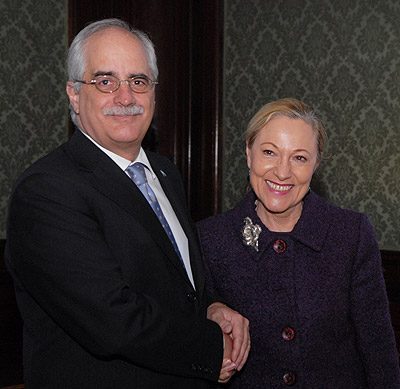 To say that a man is a casanova means that he is a conqueror with a gift for seducing women. In Spanish another equivalent term is used, donjuán.
To say that a man is a casanova means that he is a conqueror with a gift for seducing women. In Spanish another equivalent term is used, donjuán.
Despite being synonymous words, they have a very different origin, since donjuán refers to a literary character created by Tirso de Molina, while casanova refers to a historical character from the 18th century, Giocomo Casanova. Both are considered as the archetype of the seductive man.
The real Casanova
In literature and cinema, the figure of Casanova has appeared with different nuances. Sometimes he is presented as a sexual depraved and sometimes as a cultured and refined man who likes to surround himself with women.
If we want to know his life as it was, it is necessary to resort to the protagonist's literary sources, specifically his autobiography "Historia de mi vida", a work that in the 19th century was included in the Index of forbidden books of the Catholic Church.
We know that Casanova was born in the Italian city of Venice in 1725 and that he died in Bohemia at the age of 73, a time when the average age was around 40.
Physically he was a tall man with a strong complexion, but his face was not particularly handsome.
He traveled throughout Europe and maintained personal relationships with the intellectuals of his time. He was a cultured person, having knowledge of classical culture, astronomy, mathematics, music and medicine. His mother tongue was Italian but he was fluent in French.
He led a hectic and intense life, as he participated in several duels, was imprisoned for gambling debts and practicing magic, escaped from prison on several occasions, started businesses and maintained an intense literary activity.
Some investigators maintain that Casanova was engaged in espionage for the Venetian court and that his travels and love affairs were a good alibi to keep his true identity a secret.
His relationship with women and his later years
His autobiography and some testimonies of the time allow to offer some information about the Casanova womanizer. It is estimated that he had intimate relationships with more than 120 women from all walks of life. His lovers considered him a very educated, attentive and generous man (there is no negative testimony about his behavior with women).
In the final stage of his life he ended up working as a modest librarian for a wealthy nobleman in the Czech town of Duchcov. In recent years his health worsened and he focused on literary creation, especially his autobiography.
Some scholars of his work maintain that one of his literary creations, "Icosameron", could have been partially plagiarized by Jules Verne in his famous novel "Journey to the center of the Earth".
Photo: Fotolia - CurvaBezier









